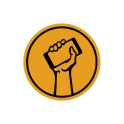Free Speech Union to hold panel discussion on free speech if Victoria University doesn’t

MEDIA RELEASE
30 April 2024
FOR IMMEDIATE RELEASE
Free Speech Union to hold panel discussion on free speech if Victoria University doesn’t
The Free Speech Union has written to the Council of Victoria University to advise them that they will hold the postponed panel discussion on free speech if the university doesn’t, says Jonathan Ayling, Chief Executive of the Free Speech Union.
“As a registered trade union, we intend to use our union status to meet on employer’s premises and to hold a union meeting. We'll host a panel discussion on free speech at Victoria University if they don’t follow through with their promise to host the event they postponed within a month.
“We applaud the university for seeking out panelists with varying viewpoints to ensure a diversity of opinions is platformed at the event. But we warn them that the tactic of those opposed to free speech is to avoid conversations altogether and to silence critics.
“By pandering to student and staff concerns that the conversation on free speech will make some people feel “unsafe”, they’ve sent the message that it’s okay to stifle opinions they don’t like. This is the antithesis of how debate should occur at a university.
“600 people were registered to attend the original event. There’s a hunger to dig deeper into the topic of free speech. But Victoria University has put itself between a rock and a hard place.
“If there was ever a time to discuss the necessity of academic freedom and free speech on our campuses, it’s now. We’re ensuring it happens.”
ENDS
Note to editor: Please find our letter to Victoria University here.








